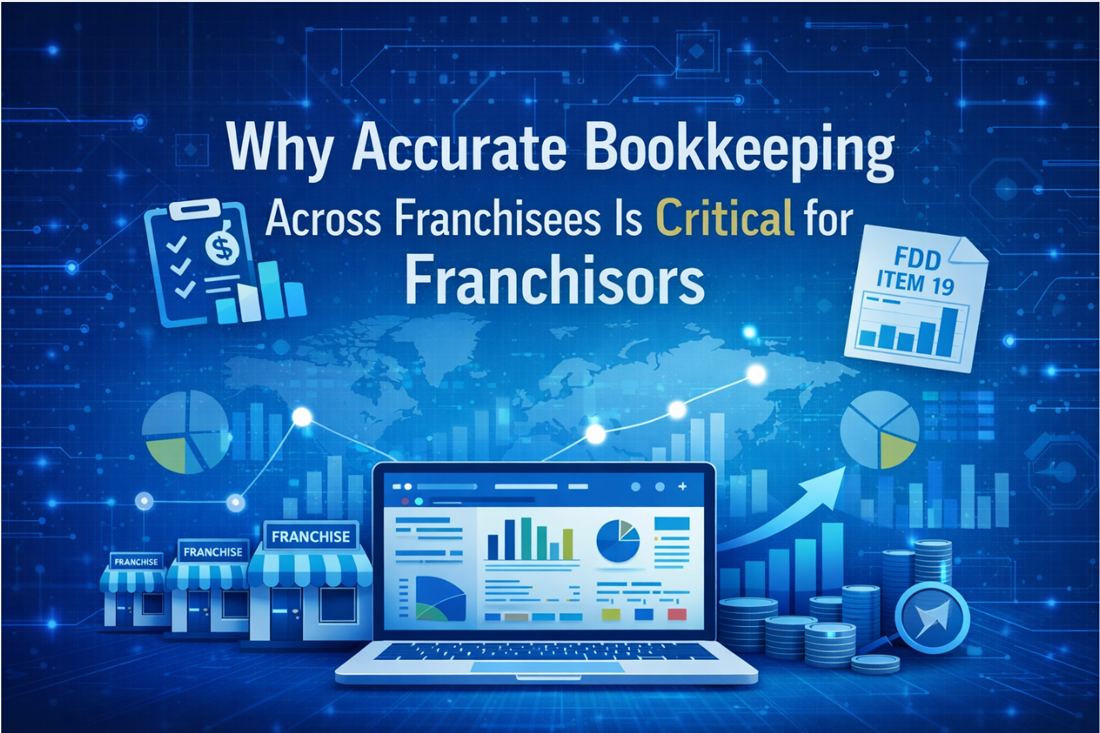In the fast-paced world of e-commerce, success hinges on the quality of products and services and adept financial management. With tax season approaching, maintaining accurate financial records becomes imperative. With potentially complicated regulations and potential deductions, e-commerce entrepreneurs face unique challenges in tax preparation. This comprehensive guide aims to demystify the process, offering tailored insights and strategies to navigate the intricacies of tax compliance and optimization. From understanding the nuances of e-commerce taxation to harnessing technology for streamlined accounting, every aspect of tax preparation is explored to empower businesses to maximize their financial efficiency. As the digital marketplace continues to evolve, staying ahead demands a proactive approach to financial management, making this guide an indispensable resource for e-commerce ventures striving for sustained growth and success.
Understanding E-commerce Accounting Basics
Understanding the basics of e-commerce accounting is fundamental before diving into specialized areas like tax preparation for e-commerce businesses. Online enterprises face distinctive challenges, including fluctuating sales volumes, complex inventory management across multiple platforms, and diverse payment gateways – dynamics beyond traditional brick-and-mortar establishments’ scope. Implementing a robust accounting system seamlessly integrating with the e-commerce platform is crucial. This integration provides invaluable insights into the business’s financial health and streamlines the tax preparation process. Real-time sales data, inventory tracking, and transaction details, all enabled by a comprehensive e-commerce accounting system, are essential components that aid in accurate tax reporting and compliance. By embracing the nuances of e-commerce accounting and implementing systems that facilitate efficient financial management, businesses can lay a strong foundation for effective tax preparation, ensuring adherence to legal requirements and promoting sound financial decision-making within the digital marketplace.
Navigating Tax Regulations for E-commerce Ventures
Navigating the realm of e-commerce taxation entails grappling with a multifaceted landscape governed by various local, state, and federal regulations. Staying abreast of evolving tax laws impacting e-commerce operations is vital to avoiding costly penalties and audits. The complexities range from determining sales tax nexus to local or international tax obligations, making it essential for e-commerce entrepreneurs to seek guidance from qualified tax professionals. Such professionals possess the expertise to offer invaluable insights into the intricacies of e-commerce taxation, ensuring businesses remain compliant while effectively navigating the complexities of the evolving tax landscape. By drawing on their specialized knowledge, e-commerce ventures can mitigate risks, proactively address tax-related challenges, safeguard financial stability, and promote sustained growth within the digital marketplace. Informed decision-making rooted in the expertise of tax professionals thus becomes a critical asset in fortifying e-commerce ventures against potential taxation pitfalls.
Maximizing Deductions and Credits
Owning an e-commerce business presents the advantage of accessing a myriad of deductions and credits to offset taxable income. Diligent record-keeping is instrumental in harnessing these benefits, encompassing expenses related to website development, digital marketing, and shipping and fulfillment costs. Leveraging such deductions and credits allows e-commerce businesses to maximize tax savings, enhancing financial health and operational efficiency. Furthermore, embracing tax incentives like the Research & Development Tax Credit can provide e-commerce businesses a competitive edge while reducing tax liabilities. Businesses can optimize their tax position by strategically identifying and capitalizing on applicable deductions and credits, effectively reducing their tax burden and enhancing their overall financial standing within the digital marketplace.
Harnessing Technology for Seamless Tax Preparation
Advancements in financial technology have revolutionized the landscape of tax preparation for e-commerce businesses, sparing entrepreneurs the arduous task of sifting through mountains of receipts and spreadsheets. The digital age offers access to tools and software explicitly designed to streamline tax preparation processes. Cloud-based accounting platforms like QuickBooks Online are instrumental in aggregating and organizing financial data, while specialized e-commerce tax software such as TaxJar caters to the unique tax requirements of online businesses. Harnessing these technological resources saves time, minimizes errors, boosts efficiency, and gives business owners accurate insights into their financial health. Implementing contemporary technology does more than simplify tax preparation; it empowers businesses to make informed decisions and promotes sustained growth within the competitive e-commerce landscape. By embracing these digital solutions, e-commerce ventures can ensure meticulous tax compliance while freeing resources to focus on core business aspects, ultimately fostering operational efficiency and financial stability within the digital marketplace.
Proactive Planning for Future Success
Strategic tax planning extends beyond mere compliance, playing a pivotal role in the long-term success of e-commerce ventures. By proactively forecasting cash flow, analyzing financial metrics, and projecting tax liabilities, entrepreneurs can make informed decisions that optimize profitability and fuel sustained growth. Through regular consultations with a tax advisor, businesses gain invaluable insights into tailor-made, tax-efficient strategies aligned with the distinct needs of e-commerce enterprises. Proactive planning facilitates the optimization of tax liabilities and supports effective financial decision-making, positioning businesses for resilience and growth within the digital marketplace. By leveraging strategic tax planning, e-commerce businesses can harness their financial resources more effectively, fortify their position amidst evolving taxation landscapes, and pave the way for sustained success and innovation in the competitive e-commerce sphere. Embracing proactive tax planning thus serves as a proactive investment in the future financial health and stability of e-commerce ventures.
Conclusion
Navigating the nuances of tax preparation for e-commerce businesses may seem daunting, yet with the right guidance and proactive planning, it becomes entirely manageable. Mastering e-commerce accounting basics, ensuring compliance with tax regulations, maximizing deductions, harnessing technology, and implementing strategic planning are pivotal steps toward positioning businesses for sustained success within the ever-evolving digital landscape. When it comes to taxes, knowledge is power – so it’s imperative to equip yourself accordingly and pave the way for a prosperous future. For comprehensive support in tax preparation and e-commerce accounting, consider leveraging the expertise of professionals at xendoo’s knowledge and experience to provide tailored solutions to optimize tax efficiency and financial management for e-commerce businesses, ensuring sustained growth and operational stability within the digital marketplace.









